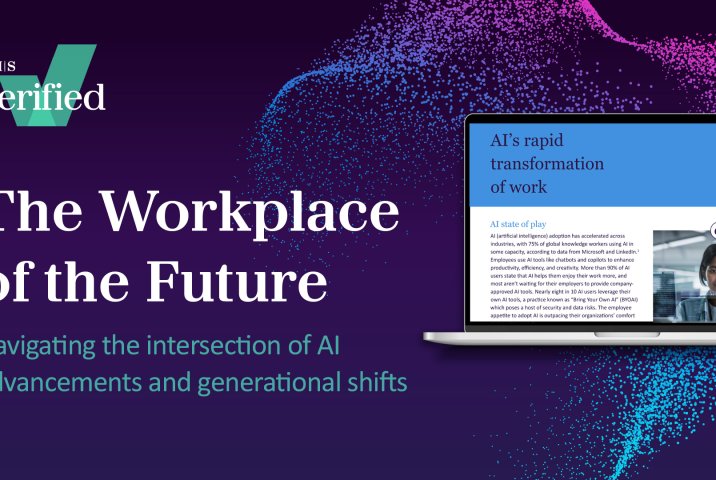Oil, gas and graduates: How new approaches to early career hiring can help drive the energy transition

22 July 2021 — The energy sector is in a state of transition. To compete successfully, organisations must do two things simultaneously. First: focus hard on finding, engaging and supporting the right talent to take them into the future. Second: continue to recruit the bright minds they need to support their more traditional oil and gas activities.
The problem is that graduates and other early career candidates are likely to see the two as mutually exclusive. For them, it is about supporting renewables and being part of meaningful change. Or it is about working for an energy company committed to the status quo. Few realise or believe they could be part of the energy transition while working in a more traditional oil and gas role.
This was one of the many early career challenges we heard about when we recently spoke with global energy company, Equinor, an AMS partner since 2014. As Stian With, Global Head of Attraction, Recruitment and Induction at Equinor, told us, “Oil and gas is a part of the total energy world and we need people to work in all parts of the company. 90% of the graduates we see are highlighting that they want to be part of the green solution so one of our challenges and focuses is how to motivate some of them to move into the oil and gas part of the company where we still need top talent.”
Many organisations are doing a great job getting the message and are still able to fill their early career programmes with ease. But for how much longer? According to the Institute of Student Employers 2020 Survey, 55% of companies in the energy, engineering and industry sectors now struggle to recruit to graduate roles, making it one of the most impacted sectors for early careers recruitment (second only to health and pharmaceuticals).
To add to the challenge, organisations need to become increasingly selective about the talent they recruit if they are to stand any chance of achieving their ambitious transition goals. Digital skills have become more important than ever post-Covid – and, fortunately, 70% of graduates claim to have reached the required level to enter the working world (Bright Network 2021 report). But digital skills are only the start. Given the pace of change, organisations also need to be sure that their early career hires have the curiosity, adaptability and learning agility to continue mastering new skills and disciplines throughout their careers.
Stian With again: “Our Early Career programmes are the core of our recruitment strategy, now and going forward. Covid has escalated the need for increased skills and competence within digitalisation, but we saw this change even before. An important thing we are looking for in graduates is the ability to learn new skills and adapt. What degree you have isn’t everything. If you have the ability to learn, understand and be willing to change and work with people across our businesses this is what we are looking for when recruiting.”
How do you know if candidates have the natural capabilities to help drive your sector forward? This is where assessment comes into its own. Organisations focusing on soft skills as well as academic performance will need to rely even more heavily on blended and strengths-based assessments and similar tools to help identify the people they need.
Energy companies that have strong partnerships with universities may also be able to influence the direction of courses and degrees to reflect the changing requirements of their businesses and of the sector as a whole. Equinor, for example, have already benefited from their long-standing relationship with Norwegian institutions. “We are in close dialogue with the main educational institutes and universities. We have been all along and Equinor’s forecast is very important for them. We have seen that they have shown a good willingness to adapt and change and start new courses within the last few years.”
But perhaps the most dramatic changes in early careers hiring, particularly over the last year and a half, have been in the hiring process itself. We have seen some outstanding examples of adaptation as the sector has responded to the challenges of the pandemic, whether it’s assessing candidates remotely, allowing new recruits to start working from home, or providing virtual internships in areas where it wouldn’t previously have been thought possible. And, while these adaptations may all have been born of necessity, many of them have proved beneficial for candidates and recruiting organisations alike. Virtual assessment centres, for example, appeal to younger generations, not only because they offer greater flexibility but also because they reduce the need for global travel and enable organisations to assess candidates in a more environmentally friendly way.
That’s not to say that the new ways of working have not presented early careers recruiters with significant challenges, particularly in the energy sector where many roles demand an onsite presence. As Stian With says, “Some early career roles attract people to work on the on-shore or off-shore plants or in other roles where it is hard, but we have been forced to recruit virtually. With good help from AMS we recruited all our early career hires in 2020-21 virtually. I think we will keep a lot of that going forward. We see that it has its upsides. We don’t need to have people flying in from all over the world. That is also about the carbon footprint. Such small elements are important in who we want to be as a company, what we want to communicate.”
Conclusion
Early career programmes are having a small but vital influence on the sector’s transformation. To compete, energy companies must recognise the value of Gen Z employees, and the critical new skills and mindsets they bring. They must then ensure the ways they are sourcing, engaging and assessing candidates – and nurturing them once they have joined the organisation – are helping to make the energy sector a top destination for the highly in-demand individuals they need.
The pandemic has been terrible in so many ways, but it has also bolstered the sector’s digital and clean energy ambitions, and given new hope to young people with strong values and skills that companies they may previously have discounted could actually offer them an opportunity to lead the way in transforming the world we live in.
Authored by:

Lynne Gardner
Sector Managing Director

Lauren Cunningham
Senior Manager, Client Services
More articles
AMS appoints new Chief Digital and Technology Officer
AMS appoints Alan Segal as Chief Digital & Technology Officer to drive AI-enabled talent acquisition. He brings 20+ years of expertise in digital transformation.
AI in Practice: Exploring use cases for Talent Acquisition
Discover how AI transforms talent acquisition. This playbook explores practical use cases, helping your team innovate, evolve, and enhance the candidate experience.
The Workplace of the Future: Navigating the intersection of AI advancements and generational shifts
The future of work is poised for a significant transformation, driven by two major trends. First, the generational shift as Baby Boomers retire and digital natives rise to leadership positions. Second, the rapid advancements in AI technology.








